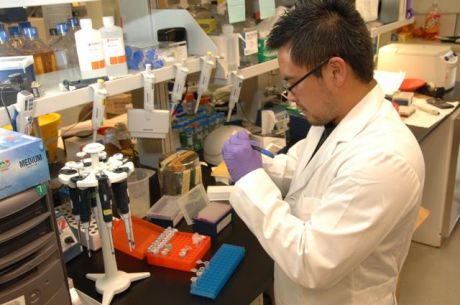Inflammation is the complex response of our immune system to get rid of harmful stimuli, including pathogens. Pathological chronic inflammation is known to be associated with many conditions, including cancer, neurodegeneration and many autoimmune diseases.
The aim of the EU-funded
TIMER (Targeting novel mechanisms of resolution in inflammation) project is to identify and validate new molecules involved in the resolution of inflammation. The concept behind the TIMER study lies in the resolution of inflammation rather than the passive blockade of pro-inflammatory mediators.
Through natural or synthetic 'pro-resolving' molecules, partners will target two key pathways of inflammation, namely the chemokine and the toll-like receptor (TLR) systems. Chemokines work to attract leukocytes to sites of inflammation where they become activated by macrophages or dendritic cells through TLRs.
So far, researchers have unveiled three different mechanisms controlling inflammation. For instance, the molecule TIR8 promoted the resolution of inflammation by blocking both chemokine and TLR pathways. Resolution of inflammation was also found to be dependent on microRNA molecules as well as metabolic molecules.
Partners worked on providing solutions to resolve inflammation in the form of synthetic or natural peptides and TLR-binding agonists. Some of these have shown promising results in pre-clinical models and their efficacy is being further evaluated in a human clinical study. Already, researchers have demonstrated the safety of TMX-101, a TLR7 agonist in phase I trials. In addition to TMX-101, they are also evaluating the efficacy of two pH-dependent anti-CXCL10 antibody candidates in humans.
By shedding light on the mechanisms that resolve inflammation, the TIMER study proposes to use both endogenous and exogenous molecules that can regulate the inflammatory process. The generated information could be exploited for the design of novel therapies and pro-resolving drugs that can alleviate the detrimental impact of chronic inflammation.

